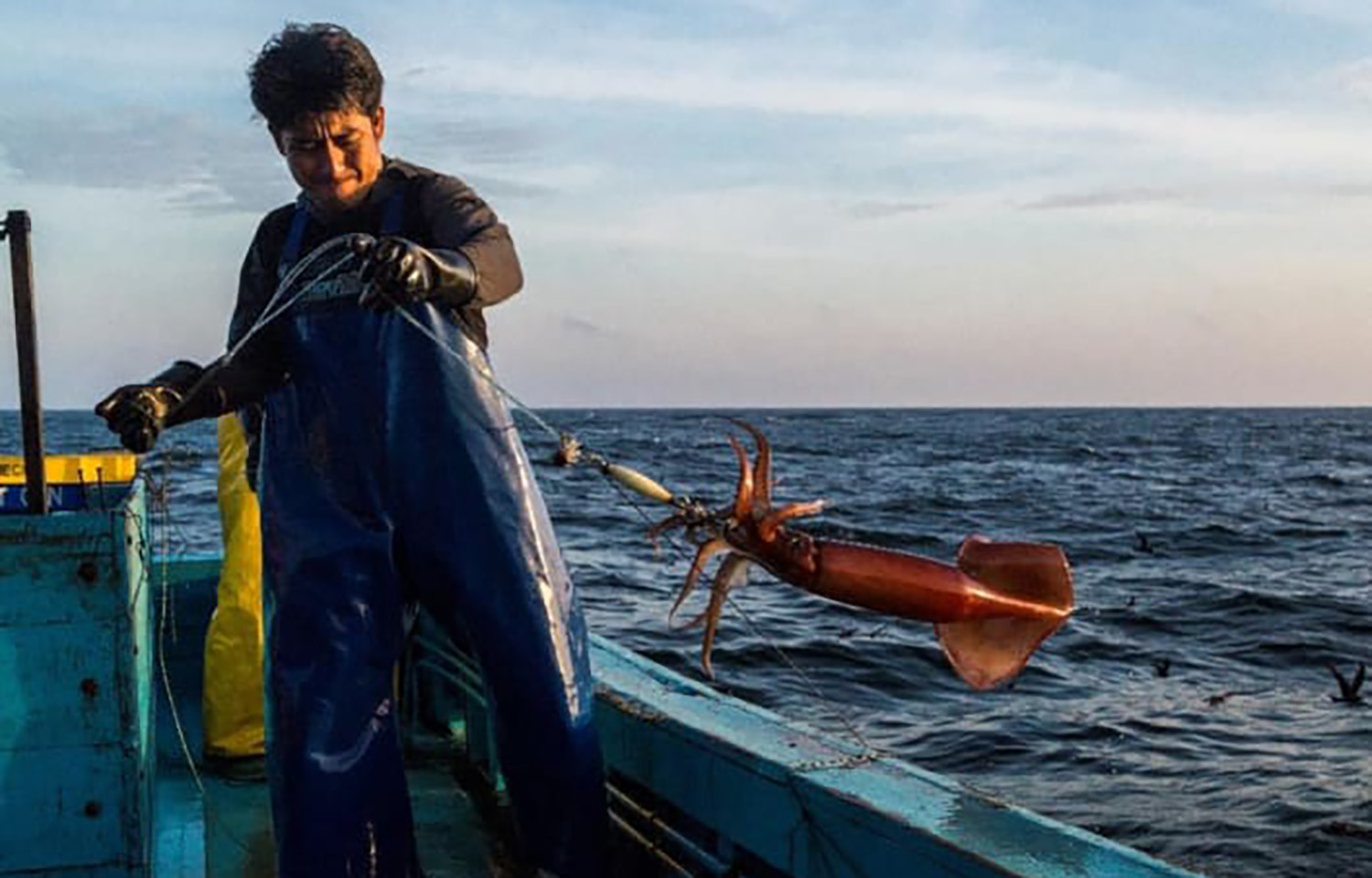Peru’s Ministry of Production (PRODUCE) is preparing a regulation that seeks to strengthen its fight against illegal, unreported, and unregulated (IUU) fishing – mainly of squid – by foreign vessels in Peruvian waters.
In May, Chinese vessel Tian Xiang was caught illegally fishing in Peru’s exclusive economic zone (EEZ) and received a negligible punishment from Peruvian authorities, which fined the infringing vessel PEN 242 (USD 64, EUR 60). The move provoked the ire of Peru’s fishing sector, with the National Society of Artisanal Fishing (Sonapescal) calling the penalty “laughable.”
That instance was followed by other complaints from artisanal fishermen, who turned to social network platforms such as Facebook and TikTok to document foreign vessels apparently fishing within Peru’s EEZ.
In response, PRODUCE Minister Sergio Gonzales recently announced his administration is working on an emergency decree to enhance the country’s control and supervision of fishing activities, following industry criticism of lax government enforcement.
The proposed regulation specifically aims to establish a new mechanism that allows the Peruvian government to report foreign vessels infringing upon Peruvian jurisdiction to international entities, such as the South Pacific Regional Fisheries Management Organization (SPRFMO). Resulting sanctions could include revoked fishing permits.
“We must recognize that after a long time, PRODUCE finally … has accepted the existence of a great problem of permissiveness, in which hundreds of foreign squid boats have taken advantage of entering our ports without adequate control,” Sonapescal President Elsa Vega said in a release.
Peruvian National Society of Industries Fisheries and Aquaculture Committee President Alfonso Miranda said the announcement is a positive signal not just for the domestic fishing sector but for international markets, which he said are watching what Peru will do to reduce the risks of providing logistical services and port facilities to vessels linked to IUU fishing activities.
“This is a first step, and we hope that this reform … will contribute to a better control of the vessels that catch squid on the high seas, which severely impact the sustainability of the species and compete unfairly with our artisanal fleet,” Miranda said. “The regulatory reforms and the inspection of foreign fleets that enter Peru represent a necessary advance – something that has been relegated for many years, according to sector actors.”
PRODUCE has pushed back on claims that it has done little to combat IUU fishing in the past.
On 5 June, to commemorate the International Day for the Fight against IUU Fishing, the ministry reported that to date, it had performed 71,432 fishing vessel inspections in 2024, in addition to 1,597 inter-institutional supervision and inspection operations throughout the country’s different coastal regions, with help from other governmental offices.
Peru Deputy Minister of Fisheries and Aquaculture Jesús Barrientos said through the operations, 1,640 metric tons (MT) of seafood had been seized that did not comply with governmental sustainability provision; of that total, he said 443 MT were donated to the poor.
PRODUCE is also making arrangements to acquire ...








